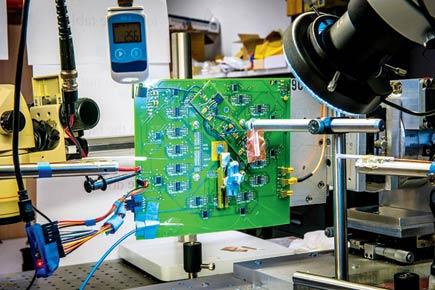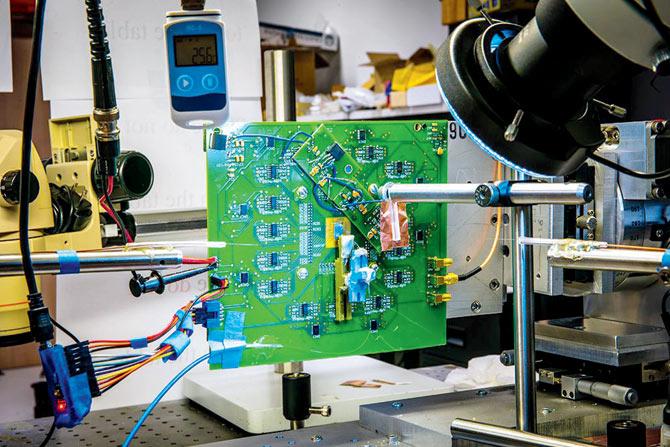Scientists have developed a new camera design that substitutes an array of light receivers for a lens, making cameras thin, light, cheap and flexible


Converts light signals into images by delaying the way that light is captured on the chip. Pics/Caltech
Scientists have developed a new camera design that substitutes an array of light receivers for a lens, making cameras thin, light, cheap and flexible. Traditional cameras cannot be truly flat due to their optics: lenses that require a certain shape and size to function.
ADVERTISEMENT
The ultra-thin optical phased array (OPA) does computationally what lenses do using large pieces of glass: it manipulates incoming light to capture an image. Lenses have a curve that bends the path of incoming light and focuses it onto a film or an image sensor.

The tiny device
The OPA has a large array of light receivers, each of which can individually add a tightly controlled time delay to the light it receives, enabling the camera to selectively look in different directions and focus on different things.
"We have created a single thin layer of integrated silicon photonics that emulates the lens and sensor of a digital camera, reducing the thickness and cost of cameras. It can mimic a regular lens, but can switch from a fish-eye to a telephoto lens instantly," Ali Hajimiri, Professor at California Institute of Technology (Caltech) said.
 Subscribe today by clicking the link and stay updated with the latest news!" Click here!
Subscribe today by clicking the link and stay updated with the latest news!" Click here!







